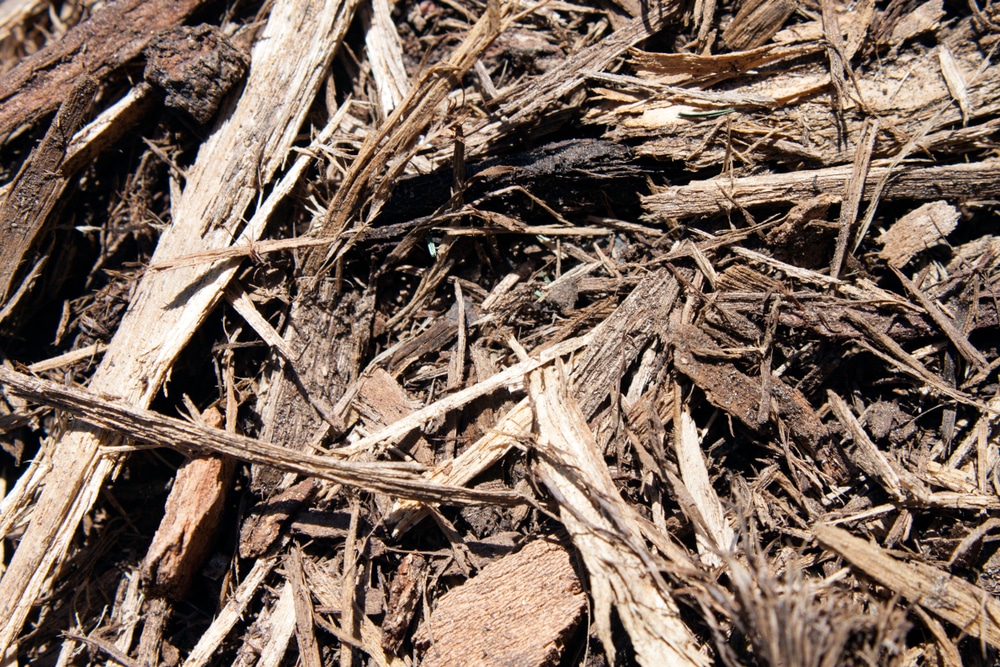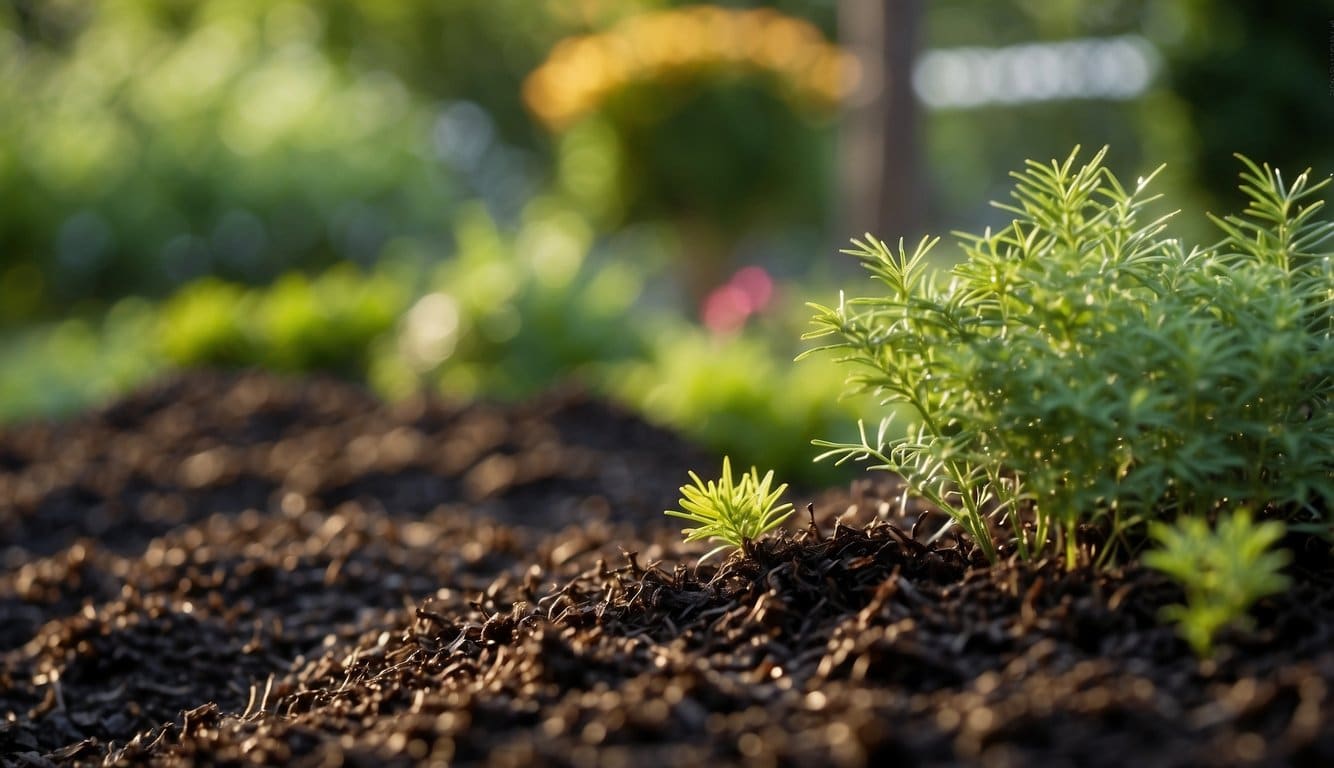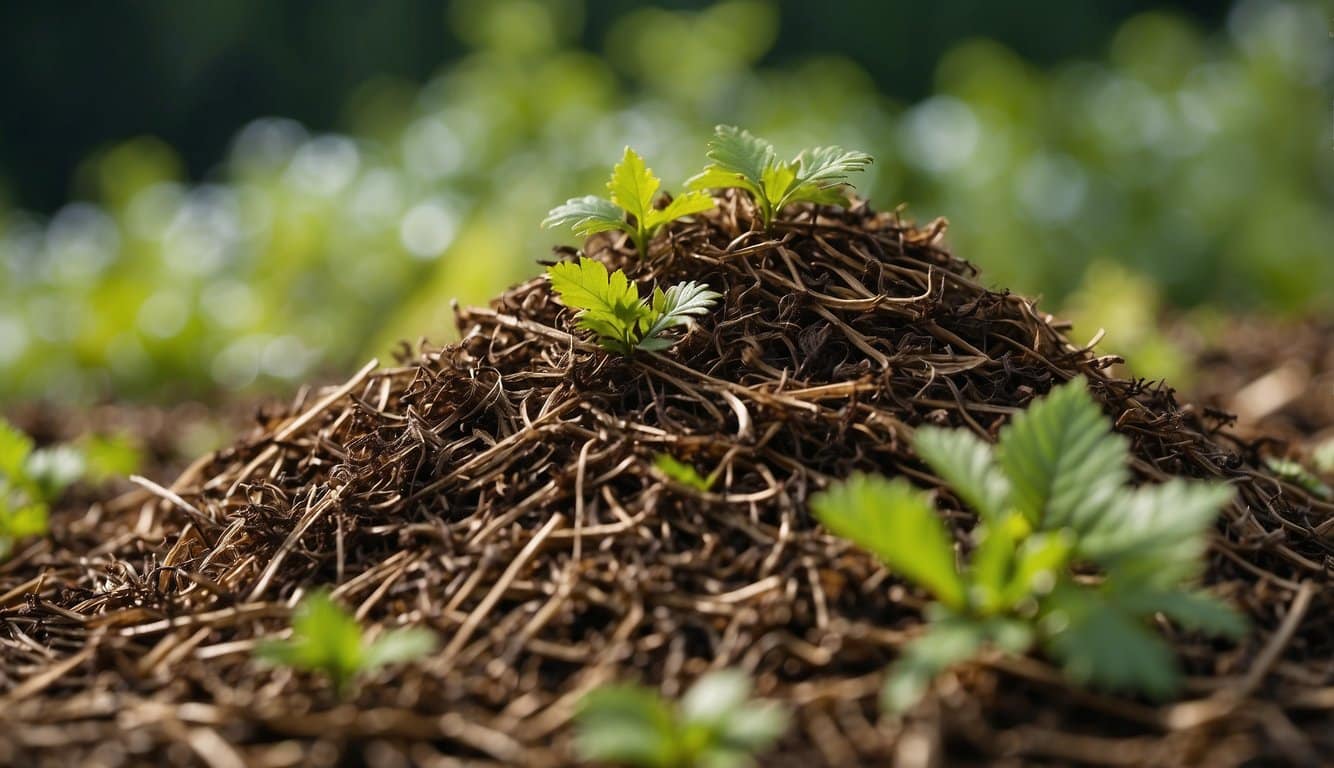Mulching is an essential part of maintaining a healthy and attractive garden, and hemlock mulch is one option that gardeners consider.
Derived from the bark of hemlock trees, this type of mulch is valued for its rich color and fine texture, which makes it an appealing choice for landscape design.
Besides aesthetics, hemlock mulch offers functional benefits like moisture retention and temperature regulation, aiding in plant health and root protection throughout the seasons.
While hemlock mulch has its advantages, it’s important to also understand its limitations.
For instance, some mulches may alter soil pH or have an impact on nitrogen levels, which could affect plant growth.
Additionally, while it is typically resistant to termites and mold, the presence of tannins in hemlock mulch, which have pest repellent qualities, should be considered alongside the specific needs and circumstances of one’s garden environment.
Key Takeaways
- Hemlock mulch offers aesthetic and functional benefits for gardens.
- It is important to be aware of the potential drawbacks of using hemlock mulch.
- Understanding the proper use of hemlock mulch can enhance its effectiveness.
Benefits of Hemlock Mulch
Hemlock mulch offers distinct advantages in garden landscaping, enhancing not only the visual appeal but also contributing positively to the underlying soil. Here are some specific benefits.
Natural Aesthetics
Hemlock mulch is valued for its dark, rich color that can complement the varied greenery of a garden. Its fine texture lends itself to a uniform appearance that many gardeners appreciate for creating a polished landscape design.
Soil Improvement
In terms of soil health, hemlock mulch aids in:
- Moisture retention: By limiting evaporation, it helps the soil retain vital moisture, benefiting plant roots.
- Temperature regulation: As an insulator, it keeps the soil warmer during colder months and cooler during the summer, providing a stable environment for plant growth.
Pest Deterrence
One of the noteworthy advantages of hemlock mulch is its resistance to pests:
- Termite resistance: Hemlock is less attractive to termites, reducing the risk of infestation.
- Natural pest deterrent: It also deters other common garden pests, thus serving as a protective layer for plants.
Drawbacks of Hemlock Mulch
While hemlock mulch offers aesthetic appeal and certain beneficial properties for gardens and landscapes, certain drawbacks warrant consideration by gardeners and landscapers alike to ensure it meets their specific needs.
Toxicity Concerns
Hemlock mulch occasionally raises alarms due to potential toxicity. The natural compounds found within can pose a risk if ingested by pets or wildlife, and caution should be exercised when using it in areas accessed by animals.
Environmental Impact
The sourcing of hemlock mulch can lead to questions about its environmental sustainability. The harvesting process and transportation can contribute to ecosystem disturbance and an increased carbon footprint.
Longevity and Maintenance
Hemlock mulch is not the most durable option available. It tends to break down faster than some other mulches, necessitating more frequent replenishment and hence, more maintenance efforts from the user.
Cost Implications
In comparison to other mulching materials, hemlock commands a higher price point. This is attributable to its relative scarcity and the processing it requires, impacting the overall budgets of landscaping projects.
Best Practices for Using Hemlock Mulch
Incorporation of hemlock mulch into landscaping projects requires thoughtful application methods, adherence to safety protocols, and strategic techniques to maximize its benefits.
Application Techniques
When applying hemlock mulch, even distribution is key. Gardeners should aim for a layer approximately 2 to 3 inches thick, avoiding direct contact with plant stems and tree trunks to prevent rot and disease. For optimal weed suppression, they must ensure the mulch layer is dense enough to obstruct sunlight but still allows water to penetrate to the soil.
Safety Measures
Gloves and protective clothing should be worn when handling hemlock mulch to prevent skin irritation. It’s also important to ascertain that the mulch is specifically labeled as “hemlock” because other mulch types from similar trees might not provide the same benefits and could be harmful if misidentified.
Optimizing Benefits
For the best results, gardeners should mulch during mid to late spring, after the soil has warmed. Refreshing the mulch layer annually helps to maintain its aesthetic appeal and functional benefits. Additionally, they should check the mulch regularly for signs of compaction and fluff the mulch as needed to allow air and water to reach the soil.
Frequently Asked Questions
When considering hemlock mulch for gardening purposes, some common inquiries arise regarding its benefits, cost, and durability. These questions help gardeners make informed decisions to ensure their gardens thrive.
What are the advantages of using hemlock mulch in gardens?
Hemlock mulch is favored for its longevity and natural resistance to termites and mold. Additionally, its fine texture and dark color enrich the visual appeal of garden beds.
How does hemlock mulch compare to pine mulch in terms of longevity?
Hemlock mulch typically outlasts pine mulch due to its denser and heavier wood composition, providing a longer-lasting protective layer over the soil in gardens.
Can hemlock mulch help deter insects, compared to other mulch types?
The natural oils and resins in hemlock mulch can serve as a deterrent to certain insects, thus potentially reducing the prevalence of pest-related issues in gardens in comparison to some other mulch types.
In what situations might cedar mulch be preferable over hemlock mulch?
Cedar mulch may be preferred in situations where strong insect-repelling properties are desired, as cedar is well-known for its potent aromatic oils that are more effective at deterring a wider range of insects.
Why might hemlock mulch be a more costly option relative to other mulches?
The cost of hemlock mulch may be higher due to factors like harvesting practices, less widespread availability, and its superior attributes such as color retention and pest resistance that add value to garden maintenance.
How durable is hemlock bark mulch when exposed to outdoor conditions?
Hemlock bark mulch exhibits good durability when exposed to outdoor conditions.
It maintains its structure and efficacy in weed suppression and moisture retention over time.


